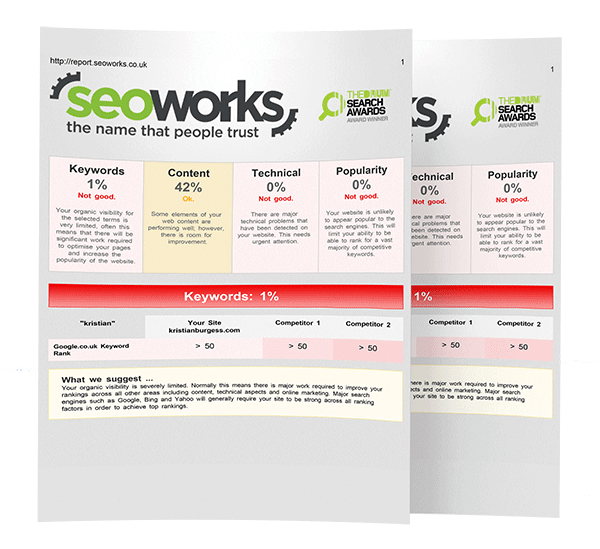Keyword Match Types Demystified
Here’s the situation. You’ve created a Google Ads campaign. You’ve created your first ad group, and now Google wants you to add your keywords…
How you add your keywords is a critically important decision! Get this right, and your ads will run only to the people searching for your products or services. Get it wrong, and you’ll accidentally fund the Google Christmas party.
Let’s say you run a gardening business. If you add the keyword hedge trimming, you might find your ads running against searches like, ‘fence building’, ‘hedge fund management’, and just about any other search term they deem relevant to hedge trimming!
Which is good for Google (and great for the Google Christmas party). But not so good for you.
The way to fix this problem is to understand keyword match types.
What are Keyword Match Types?
First, an important distinction:
- A ‘search query’ is the word or phrase a potential customer enters into Google.
- A ‘keyword’ is what you, as a marketeer, enter into Google Ads to target your advert to one or more search queries.
At first glance that may sound like a difference of semantics, but the difference between keywords and search queries can be huge.
Keyword ‘match types’ are criteria that are set on your keywords, and these control which search queries trigger your ads to appear. The keyword match type options available to you are shown in this table:
| Match Type | Symbol in Google Ads | Example Keyword | Example search query that could trigger an ad |
| Broad match | keyword | hedge trimming |
|
| Broad match modifier | +keyword | +hedge +trimming |
|
| Phrase match modifier | +keyword.order | +hedge +trimming.service |
|
| Phrase Match | “keyword” | “hedge trimming” |
|
| Exact Match | [keyword] | [hedge trimming service] |
|
- If you use broad match Google will also show your ad against terms they feel are broadly relevant, with the words in any order. Broad match is the default match type that all your keywords are assigned to when you add them to Google Ads. So you might find your ads appearing for hedge management service.
- There is a use case for broad match keywords – but they’re an advanced option, not a default. They can be used to find new keywords you hadn’t thought of, but don’t use them when you’re first starting out.
- A broad match modifier is a middle ground between broad match and the other more targetted match types. Broad match modifiers allow you to specify certain search terms that must be included in order for your ad to be displayed. Your keywords will appear in a user’s search in any order.
- Phrase match modifier gives broad match modifier users further control. It essentially combines a set search query with additional words used in the query. With phrase match modifier, the searchers word order matters.
- Phrase match will show your ad as long as that phrase is included in the search term, with the words in that order.
- Square brackets around the keyword indicates exact match. For example [hedge trimming service] would only target people searching for hedge trimming service. It may also show your ad for plurals and close variations (e.g. hedge trimming services).
Essentially, as you progress through the match types you move from reach and visibility through to more relevance. Exact match is like fishing with a small precise fishing rod. Broad match is like fishing with dynamite! (BOOM!)
We Use Broad Match Modifier a LOT…
If you’re not so keen on handling dynamite, the solution is broad match modifier. By putting +plus +signs in front of words, you tell Google that those words HAVE to appear in the search query for your ad to appear. This makes it more like phrase match, except that word order doesn’t matter. +hedge +trimming will cause your ad to run for the search query trimming garden hedge.
The Halfway House – Phrase Match Modifier
There is a halfway house between phrase match and modified broad match. If you only want to fix the word order in part of the keyword, you can now use phrase match modifier…
Phrase match modifier works in the same way as modified broad (with plus signs in front of anchored words), but you place a full stop between words to fix the word order. +best +ppc.agency wouldn’t match the search query best agency for PPC.
(Does your head hurt yet? Bear with me – we’re nearly there!)
Where To Start – If In Doubt
So how should you use this in practice when you’re first creating an ad group? Where should you start?
In general, my advice is to use a combination of [exact match] and +modified +broad +match, as long as the word order doesn’t matter to you.
If the word order matters, start with exact match and phrase match. If you manage a bear sanctuary in Chicago, you would need phrase match to ensure you never bid on the search query Chicago Bears.
There’s no reason why you can’t have the same keyword in an ad group on multiple match types. Google should record an impression against the most specific match type, and to make sure this happens you can lower your phrase or modified broad match keyword bids slightly (10-15% is enough).
The reason you have keywords in your account on exact match is so you can monitor the performance of that particular search query. When you look at the statistics for a phrase or broad match keyword, you’re really looking at the aggregate statistics for a whole bunch of search queries.
You then use phrase or modified broad match keywords to find other keywords you might want to add on exact match. Over time this process is extremely powerful. Regularly reviewing your search queries is the best way to do ongoing keyword research without access to expensive tools.
Your Best Buddy: Negative Keywords
A negative keyword will prevent your ad from appearing, and can be applied at the campaign or ad group level.
Negative keywords have three match types: broad, phrase and exact. By default a negative keyword will be added on negative broad match, which prevents your ad from appearing in any phrase including that term.
If you have keywords you KNOW you don’t want ads to appear for (e.g. if the search query includes ‘job’, ‘career’, ‘salary’ etc) then add those at the campaign level.
Use Negative Phrase and Negative Exact for Fine Control
Back to our gardening example. You might for example add ‘gardening’ as a negative exact, because people who only search for ‘gardening’ probably aren’t looking for a gardening service yet. They could be looking for anything – books, tips, Alan Titchmarsh’s Wikipedia page, who knows…
If they enter a longer phrase (gardening service, gardening company, gardening providers etc.) you might want your ad to run.
(You might also add ‘rest’ on negative broad, to exclude people searching for a local pub called the ‘Gardner’s Rest’!)
So generally you’ll want to add negative keywords using the default negative broad, but you should be aware that negative phrase and negative exact exist to give you fine control.
In Summary
There are 5 keyword match types that give you control over when an ad is shown to a searcher. Keyword match types can be a minefield, and if not used correctly, can result in wasted budgets and lower performance. Incorrect use of keyword match types is a common mistake in many of the Google Ads accounts we see, so feel free to request an audit to check your setup.

Rob is an expert in Google Ads, copywriting, and marketing automation. He’s also an author of three books on marketing and a part-time podcaster.

